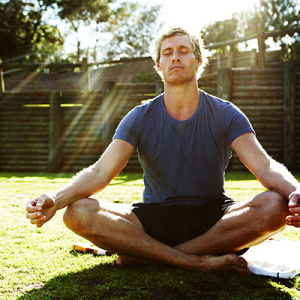Worry may seem like human nature, and to an extent, it is. When our lives are in danger due to an actual threat, fear can trigger the fight-or-flight reaction. While life-saving in extreme cases, worry can be harmful if abundant in daily life. Millions of people suffer from stress related anxiety and meditation is a way in which to manage stress and increase happiness.
There Is An Answer
If you’ve come to the realization that your life is not in danger, but you’re still feeling short of breath, overwhelmed and shaky, you could be experiencing an anxiety attack. You’re not alone. In the past, mental health issues have been associated with stigmas, but that trend is dying out due to social acceptance and quality psychiatric care. If you’re experiencing anxiety, don’t be ashamed. You are allowed to have those feelings, but you’re also allowed to experience relief and joy.
Along with therapy or psychiatric care, meditation serves as a lifelong coping strategy for anxiety. The first step is to schedule time for a daily meditation routine, just like you would block out time to visit the gym. We suggest meditating in the morning before you get ready for the day, or in the evening before bed.
 Set Up a Sacred Space
Set Up a Sacred Space
It’s essential to create a space solely for meditation, so you can focus on your breath and let your thoughts run freely without distraction. Ambience is key to reducing anxiety, so implement some calming decor. We love to use soft-light lamps, eco-friendly paint in cool colors like blue or gray, and a comfortable seating cushion. Creating a separate space for your meditation space will also trigger a positive emotional and mental reaction as you begin to associate the environment with peace of mind.
Ways to Meditate
Mindfulness is the technique used when you allow yourself to think freely. When you simply observe, you take away your own judgment and begin to experience what it’s like to think without a dark cloud of anxiety looming over you. This allows your brain to develop new pathways of thought other than worry and stress.
 Another form of meditation is concentration, in which you repeat a word, phrase or mantra to drown out distractions and extraneous, negative thoughts. You can pick the word that means the most to you. Perhaps it’s peace, love, grace or forgiveness. Maybe it’s a spiritual saying or verse. There is no wrong answer. Just monitor your breath, focus on one point in the room, and repeat the word in your mind or out loud. No matter what you choose, remember to be patient—successful meditation is an acquired skill and takes practice.
Another form of meditation is concentration, in which you repeat a word, phrase or mantra to drown out distractions and extraneous, negative thoughts. You can pick the word that means the most to you. Perhaps it’s peace, love, grace or forgiveness. Maybe it’s a spiritual saying or verse. There is no wrong answer. Just monitor your breath, focus on one point in the room, and repeat the word in your mind or out loud. No matter what you choose, remember to be patient—successful meditation is an acquired skill and takes practice.
Improved Health Reduces Anxiety
Research shows that meditation leads to relaxation, which also lowers blood pressure, improves circulation, lowers blood cortisol levels, and promotes feelings of well-being. All of these health benefits can improve your quality of life, which should alleviate a significant amount of worry. If some of your biggest stressors are health issues and medical bills, the art of meditation will benefit you in both of these areas.
 Bryn Huntpalmer is a mother of two young children living in Austin, Texas where she currently works as an Editor for Modernize. In addition to regularly contributing to Home Remodeling and Design websites around the web, her writing can be found on Lifehacker and About.com.
Bryn Huntpalmer is a mother of two young children living in Austin, Texas where she currently works as an Editor for Modernize. In addition to regularly contributing to Home Remodeling and Design websites around the web, her writing can be found on Lifehacker and About.com.
